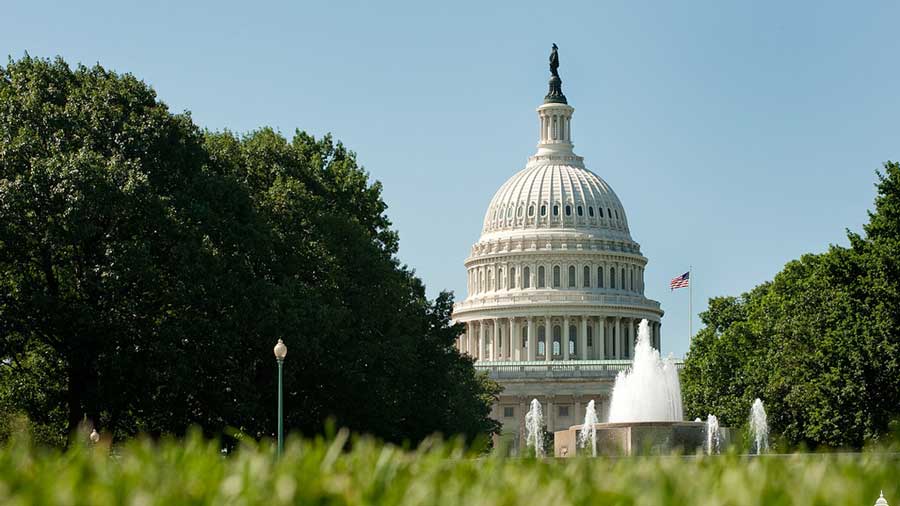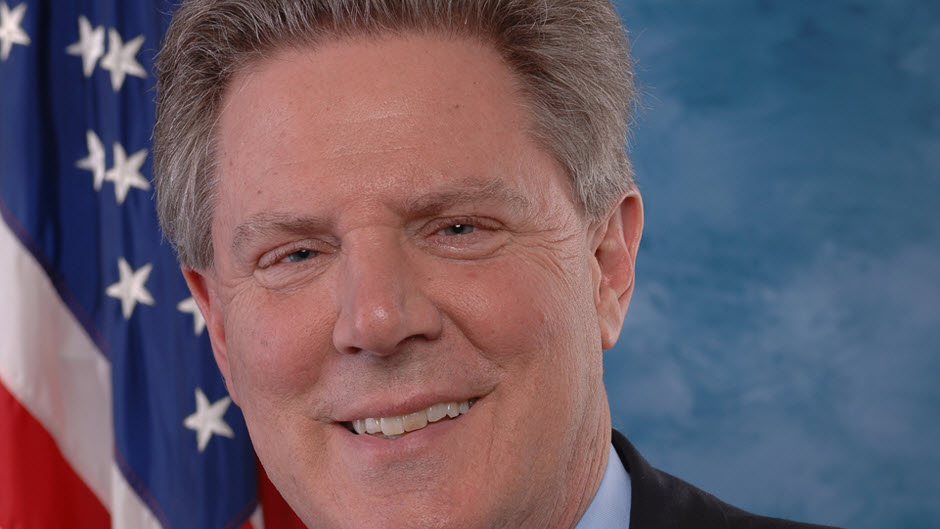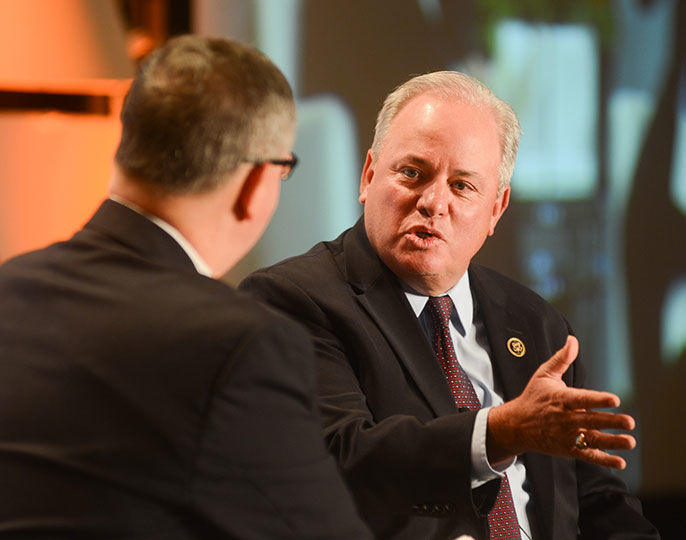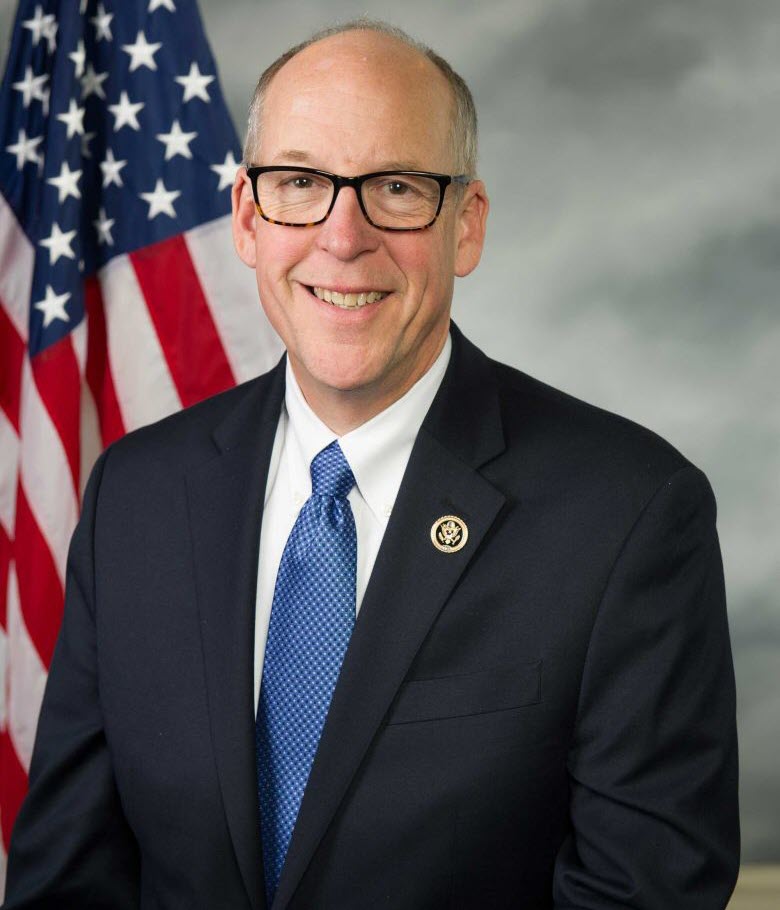Net Neutrality Rule Restoration Bill Clears First Hurdle

The smarter way to stay on top of broadcasting and cable industry. Sign up below
You are now subscribed
Your newsletter sign-up was successful
The House Communications Subcommittee has voted along party lines to refer the Save the Internet Act (HR 1644) to the full committee, where it is also expected to be favorably reported out. House passage is also likely, though the Republican-controlled Senate is a much tougher ask. The vote was 18 to 11 and came in a markup marked by the political divide over Title II.
HR 1644 is the bill that would restore the rules Title II classification of internet access and rules against blocking, throttling and paid prioritization, as well as a general conduct standard that would let the FCC get to other conduct that did not fall under those rules but that it concluded impeded access to an open internet.
Democrats called the bill a common sense restoration of a net neutrality cop on the beat and called the Republicans to get on board. Republicans instead saw it as a Title II club the very existence of which could threaten ISP investment and innovation.
Related: House Schedules Markup of Save the Internet Act

There was some talk of bipartisanship, but mostly the talk simply deepened the lines in the sand being drawn. Rep. Frank Pallone (D-N.J.) said of the Title II-restoring bill: "Failure to move forward on this legislation is simply not an option."
"[N]et neutrality is not Title II," said Greg Walden (R-Ore.) ranking member of the full committee. "Net neutrality does not need the harmful, heavy-handed approach of Title II."
The bill is expected to get a full committee next month, and already has a schedule for House floor consideration, which led Republicans to suggest the outcome was predetermined.
The smarter way to stay on top of broadcasting and cable industry. Sign up below

While Markups usually feature amendments, there was only one. In fact, committee chair Mike Doyle (D-Pa.) almost plaintively called for amendments throughout the hearing, only to be greeted by more statements about the importance of net neutrality rules--from both sides of the aisle--as well as plenty of questions from Republicans to the committee's majority counsel on legal points aplenty.
The amendment, introduced by Rep. Greg Walden (R-Ore.), ranking member of the full committee, would provide an exemption for small ISPs from the enhanced transparency requirements that the bill would also restore.

Walden withdrew the amendment after getting assurance from Doyle and others that they would work with him to find some middle ground on the issue before committee markup. The Democrats support some kind of relief for smaller operators, but how much and for how long remain issues.
The hearing once again showed that Democrats and Republicans remain at odds over fundamental issues, like Title II and that general conduct standard.
Doyle said that while his door was open no Republicans had come in to talk about the bill. For their part, Republicans suggested that since the door appeared to be closed to a non-Title II option, there was nothing to talk about. Walden did say he had hopes for compromise, but suggested a better starting point would be his non-Title II-based bill that would restore rules against blocking and throttling and paid prioritization.
Republicans had lots of questions for counsel, mostly about whether the FCC could "unforbear" the parts of Title II that the 2015 Open Internet Order did not apply. The answer appeared to be that the FCC could revisit the some 700 Title II rules the FCC did not apply.
They are also worried that while the bill prevents the FCC from setting rates for broadband service, it does not prevent it from essentially regulating rates after the fact. Democrat Rep. Darren Soto (D-Fla.) appeared to concede that point, saying that the law clearly gave the FCC rate oversight "only" over its Title II authority to prevent unjust, unreasonable and discriminatory practices.
Republicans fear that "only" is too much rate-setting power.
Walden said if the FCC was locked into its forbearance, that would appear to mean that the FCC was forever prevented--unless Congress stepped in--from requiring ISPs to pay into the Universal Service Fund for broadband--currently the fund is confined to phone service. The 2015 Order did no weigh in on that issues, but said it might. It was not crystal clear, but the answer Walden heard was that the FCC could not revisit the issue absent congressional action.
Related: Walden Says It Is Time for Serious Conversation About Regulating Edge
Rep. Walden echoed a familiar theme among Republicans, saying that the bill did nothing to reign in edge provider content blocking or throttling. Rep. Anna Eshoo (D-Calif.), who represents Silicon Valley, responded that those were interesting questions, but not germane to the bill before them.
The tough rhetoric in legislators' opening statements signaled how far apart they still are.
Rep. Bob Latta (R-Ohio) ranking member of the subcommittee, called returning to Title II "dangerous and wrong" and called the bill a partisan foray and a missed opportunity.
Rep. Debbie Dingell (D-Mich.) made it personal to FCC chair Ajit Pai, who championed the net neutrality deregulation the bill would reverse.
She said the bill would redress a wrong by Pai, who had "abolished" net neutrality and hurt millions of Americans, falsely claimed that the FCC's docket had come under cyber attack, ignored the "outpouring of comments" and the will of the people for net neutrality rules, a will she had been hearing loud and clear from calls and emails to her office.
Walden tried to offer the sunniest view of a definitely cloudy horizon. "I remain committed to a bipartisan solution to preserving a free and open internet," he said. "I believe it is achievable and I want to express to my friends on the other side of the aisle that our offers to work together are genuine and have been made in good faith."
Contributing editor John Eggerton has been an editor and/or writer on media regulation, legislation and policy for over four decades, including covering the FCC, FTC, Congress, the major media trade associations, and the federal courts. In addition to Multichannel News and Broadcasting + Cable, his work has appeared in Radio World, TV Technology, TV Fax, This Week in Consumer Electronics, Variety and the Encyclopedia Britannica.

